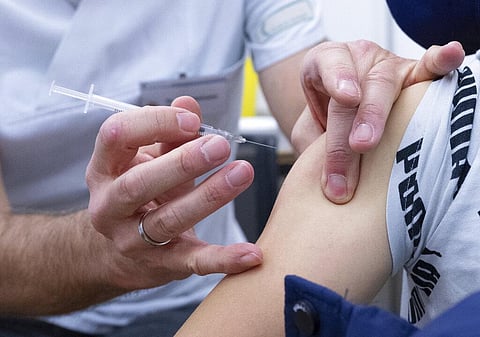

Portugal, one of the countries with the highest Covid-19 vaccination rates worldwide, began inoculating over-fives Saturday, and France said it was ready to roll out jabs for them from next week.
Europe is currently battling to rein in the spread of the highly mutated Omicron variant of the coronavirus, believed to be much more infectious, and EU chief Ursula von der Leyen has warned the new strain could be dominant in Europe by mid-January.
A number of countries have already opened up their immunisation drives to younger children, even though the EU's health agency has warned that jabs alone will not be sufficient to stop the variant's rise.
In Portugal, where 88.9 percent of the population is vaccinated, more than 60,000 children aged between five and 11 were set to receive their first jab of the Pfizer Covid-19 vaccine this weekend.
In France, health minister Olivier Veran said that jabs will start to be administered to children in the same age group from Wednesday.
"If all goes well, we will start vaccination of children on the afternoon of December 22 in specially adapted centres," he told France Inter radio.
But even as children line up to get jabs, the EU health agency ECDC has said measures like mask-wearing, distance working and the prevention of crowds were essential to reduce the burden on healthcare systems in the time available, with vaccines alone taking too long.
The EU's medicines watchdog last month approved the lower-dosage Pfizer-BioNTech shot for five to 11-year-olds, an age group experiencing high coronavirus infection rates across the continent.
Denmark, which has seen a surge in cases attributed to the new Omicron variant, and some Austrian regions already began offering jabs to younger kids in November.
The United States was the first large country to take the plunge and has so far vaccinated more than five million children in the five-to-11 age bracket.